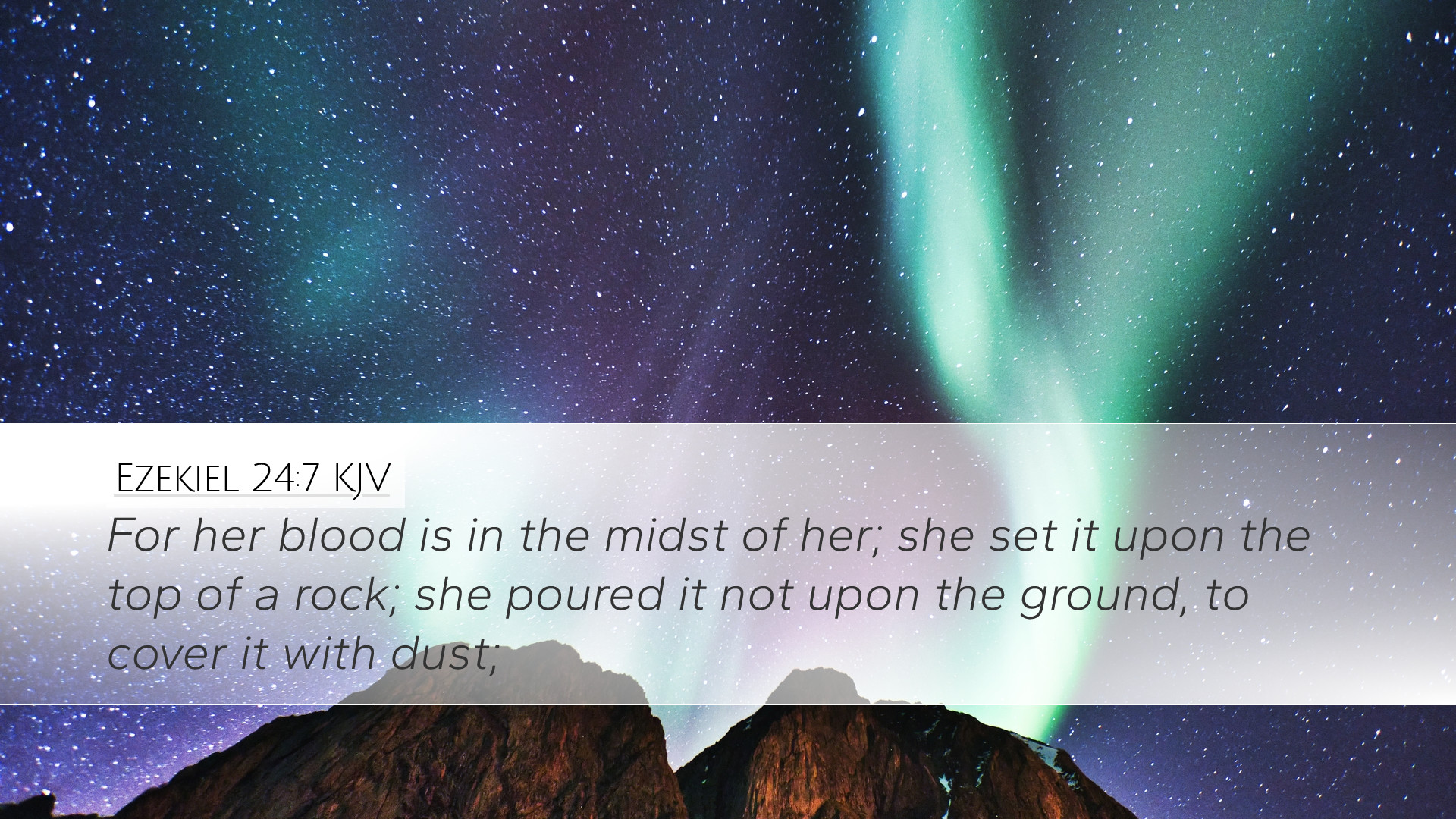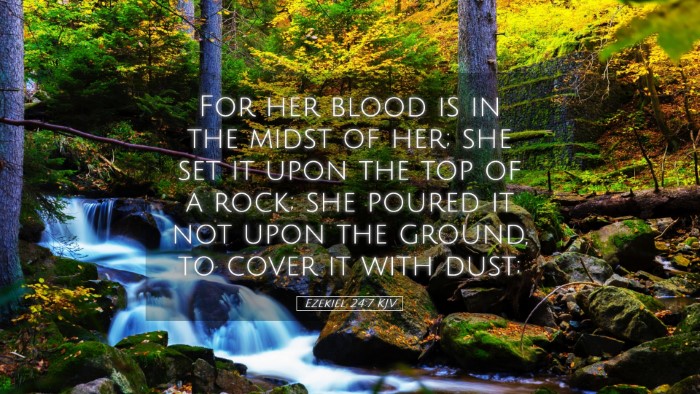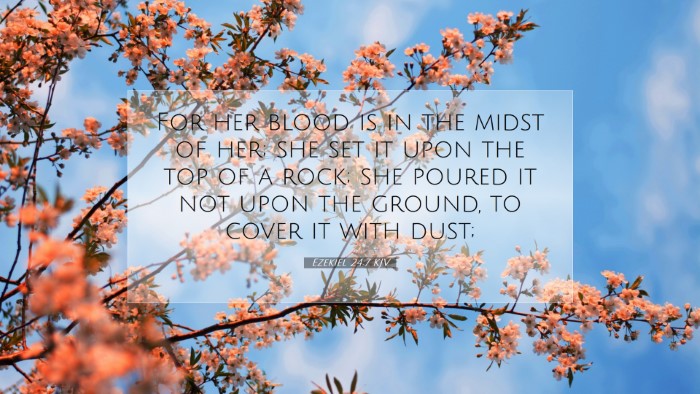Ezekiel 24:7 Commentary
Bible Verse: Ezekiel 24:7 - "For her blood is in the midst of her; she set it upon the top of a rock; she poured it not upon the ground, to cover it with dust."
Introduction
This verse from Ezekiel addresses the grave sins of Jerusalem, personified as a woman. In this context, the 'blood' signifies the violence and injustice that flowed in the city, while the image of it being poured upon a rock highlights the blatant disregard for the sanctity of life. This verse serves as a harrowing reflection on the moral decay present within Judah and points towards the broader themes of judgment and accountability that permeate the book of Ezekiel.
Contextual Background
The context of Ezekiel 24 is one of impending judgment against Jerusalem. The prophet Ezekiel, while in exile, is tasked with delivering direct messages from God about the impending doom due to the people's unrepentant behavior. This chapter is pivotal as it marks a significant point in Ezekiel's prophetic ministry, illustrating God's displeasure with His people.
Insights from Matthew Henry
Henry notes that the 'blood' signifies not only literal bloodshed but also represents the spiritual and moral ruin of the people. The 'rock' upon which the blood is poured symbolizes a hardened heart, a refusal to acknowledge sin and guilt:
- Unrepentant Sin: The refusal to cover the blood signifies a stubbornness in the face of wrongdoing, indicating an unwillingness to hide or atone for sins.
- Public Display of Guilt: By pouring the blood on the rock, there is an open declaration of rebellion against God; it reflects a heart that is openly defiant.
Insights from Adam Clarke
Clarke further elaborates on the symbolism of blood in this context. He emphasizes the seriousness with which God views sin, particularly the injustice done to the innocent:
- Sacredness of Life: Clarke points out that blood is the life force; thus, shedding blood represents a grave offense against God's created order.
- Judgment Is Certain: The highlighting of this blood on the rock serves as an indictment – it indicates that judgment is not only approaching but is irrevocably tied to the unrepented sin of the people.
Insights from Albert Barnes
Barnes provides an additional layer of interpretation, focusing on the imagery and its implications for the people of Jerusalem. He infers that:
- Symbol of Violence: The blood represents the violence that was rampant in the city, suggesting that the people had become desensitized to acts of violence and injustice.
- Call to Acknowledge Sin: The act of not covering the blood indicates a failure of the people to acknowledge their transgressions, thus leading to their inevitable downfall.
Theological Implications
This verse has profound theological implications regarding sin, judgment, and God's justice. It emphasizes how visible and open sin carries with it the weight of accountability. The prophets continually call for repentance, but here, the focus is on the stark reality of a society that chooses to flaunt its sins instead of confronting them:
- God’s Justice: Understanding that God’s justice requires accountability for bloodshed and sin serves as a grim reminder for all societies.
- Invitation to Repentance: The imagery invites readers to reflect on their lives and the broader societal implications of unchecked violence against God’s created order.
Application for Today
For pastors, students, and scholars alike, the message of Ezekiel 24:7 is a clarion call to recognize the seriousness of sin in our own contexts. The disregard for life and morality can be seen in many contemporary issues, and this scripture resonates with a call to reflect and respond:
- Awareness of Sin: Being mindful of the 'blood' that metaphorically stains the fabric of society today and working towards acknowledging and addressing it.
- Call to Action: Encouraging congregations and communities to work towards justice, mercy, and restoration as a reflection of God’s character.
Conclusion
Ezekiel 24:7 is a powerful verse that encapsulates the grim reality of sin within a society that turns a blind eye to injustice. Through the insights of various esteemed commentators, we see a multi-faceted understanding of God’s message to His people. The themes of repentance, judgment, and accountability challenge us today to pursue righteousness and proclaim the sanctity of life as reflective of our creator. The study of this verse deepens our understanding of God’s nature, calling us to be agents of change in a world that increasingly resembles ancient Jerusalem’s disregard for moral and spiritual law.


